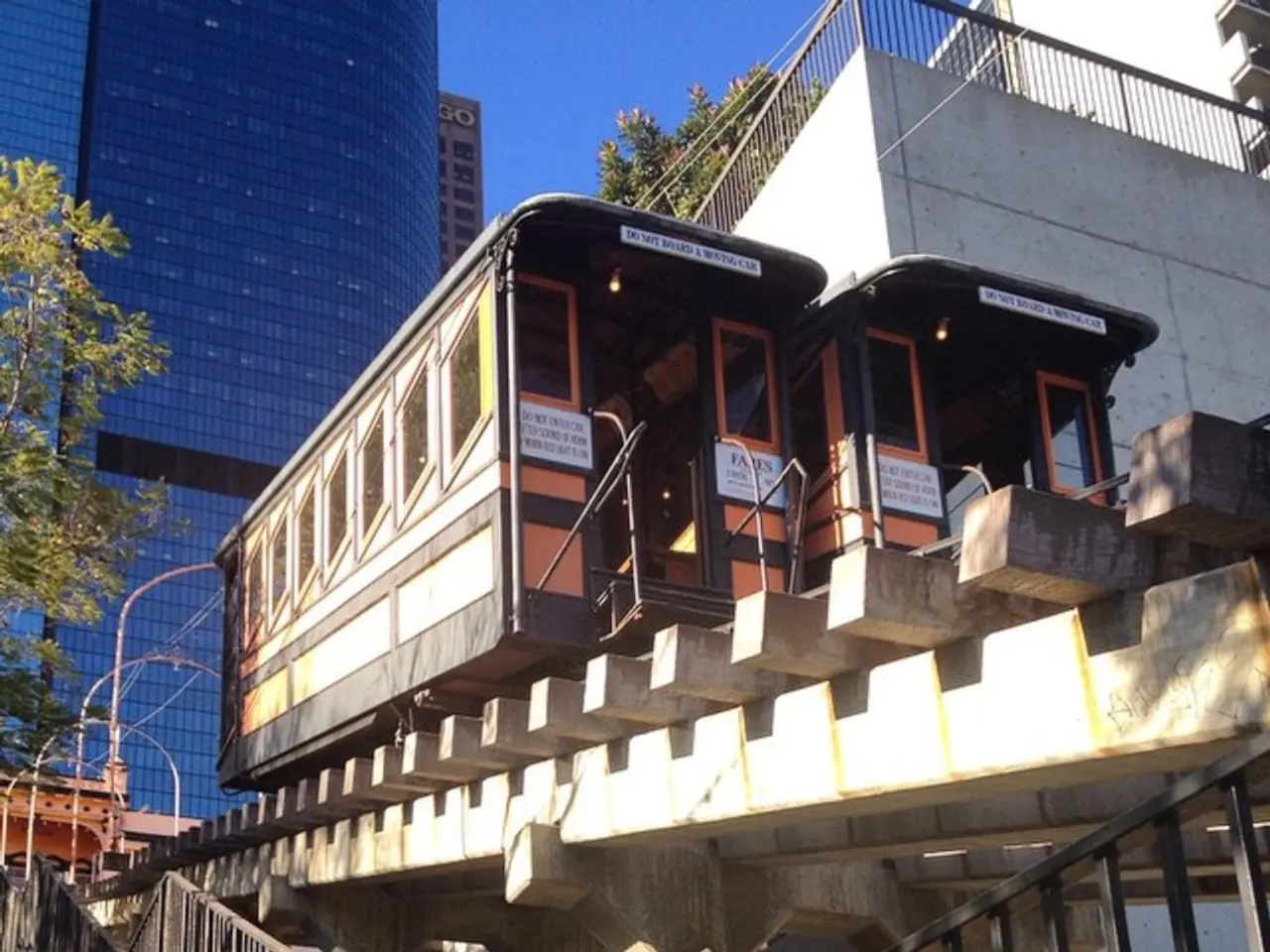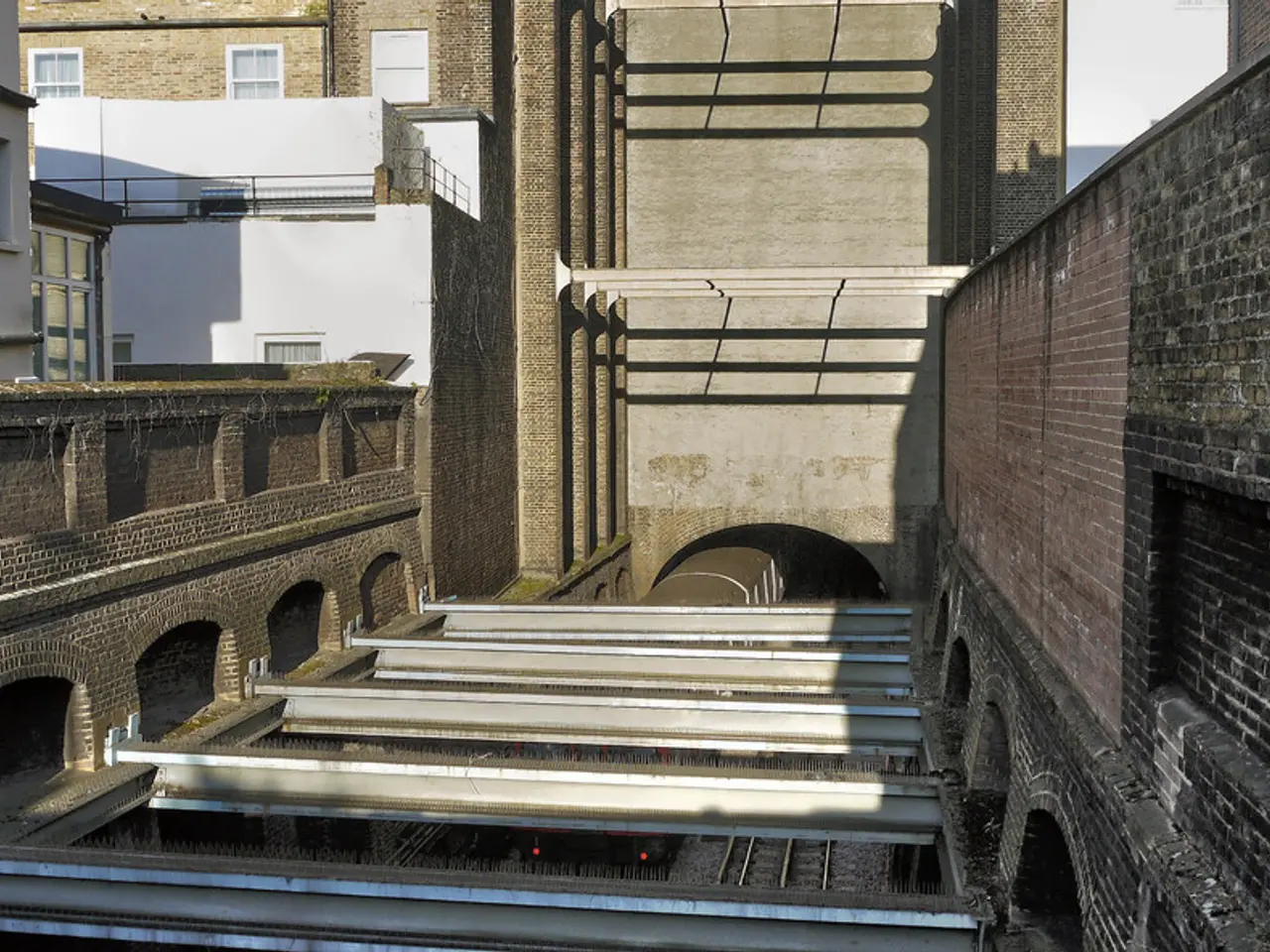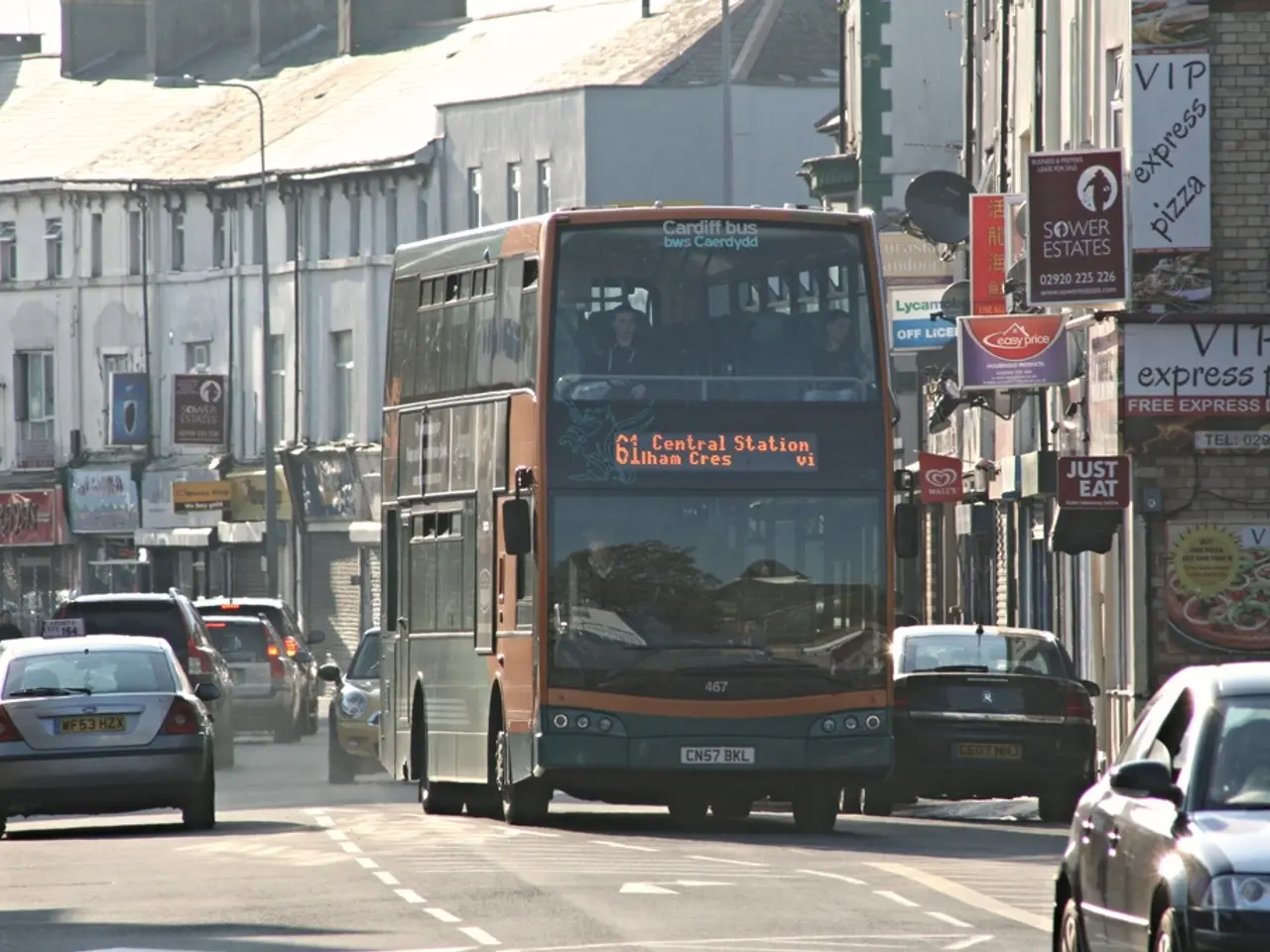Extensive overhaul work on Deutsche Bahn could stretch out significantly. - Extensive overhaul of Deutsche Bahn may require extended timeline
Let's cut to the chase: Deutsche Bahn's ambitious plan to modernize Germany's ailing rail network, focusing on more than 40 heavily congested railway lines, will likely take longer than originally anticipated. The target completion date has been pushed back from the early 2030s to the mid-2030s.
Why the change of heart? Deutsche Bahn InfraGo, the subsidiary handling infrastructure duties, plans to reduce the number of annual comprehensive renovation projects from up to nine to 4-5 each year. This adjustment was communicated in a letter to other transportation companies obtained by DPA, a news agency.
The letter, penned by DB InfraGo, emphasized the necessity for a balance between capacity restrictions, the construction industry's performance, and immediate investments in the rail network during what they call "comprehensive renovations."
The Federal Ministry of Transport, in an official statement, stated that they're reviewing the corridor renovation concept and making necessary adjustments, as per the coalition agreement. Currently, DB InfraGo is working on an adjustment proposal, which might involve extending the timelines for the projects.
The ongoing modernization of numerous heavily traveled rail corridors is a significant step in gradually improving Germany's beleaguered rail network. Each of the 42 lines is set for a six-month-long, extensive overhaul. The route between Hamburg and Berlin is the current focus, following the Riedbahn between Frankfurt and Mannheim, which underwent the process last year.
Initially, DB had planned to complete all lines by 2031. However, some doubts were raised concerning the timeline early on due to the significant disruptions caused to passengers and freight transport during the closures. The new federal government's coalition agreement includes a review and potential amendment of the concept.
Competitors in freight transport also believe a revision is necessary and find the current timeline overly optimistic.
- Deutsche Bahn
- Rail Network
- Comprehensive Renovation
- Railway Line
Behind the Scenes: The Hamburg–Berlin Corridor Renovation
The renovation work on the Hamburg–Berlin line is slated to begin on August 1, 2025, and end by April 30, 2026. During this nine-month period, the project will see significant upgrades, including the renewal of over 180 kilometers of track and more than 200 switches to enhance infrastructure, capacity, and service quality on one of Germany’s busiest intercity rail routes.
Several factors contribute to the current timeline and potential delays: competitive tendering that keeps the project on schedule and within budget, lessons learned from previous projects, the phased implementation of new technologies, complex coordination among multiple contractors, and efforts to maintain ongoing train services.
Despite the challenges, the project is currently on track to meet the planned timeline, but potential delays could arise from the inherent complexities of large-scale rail upgrades, contract management, technical integration of control systems, and managing service requirements.
Other major German rail infrastructure projects, like the Munich S-Bahn expansion, are also underway, indicating the ongoing nature of DB’s network renovation efforts.
In essence, while the current renovation project on the Hamburg–Berlin line is on track to meet the planned 2025-2026 timeline, delays could occur due to complexities inherent in large-scale rail upgrades, contract management, technical integration, and service continuity. Leveraging prior project experience and competitive procurement has so far mitigated major schedule risks.
- The Hamburg-Berlin corridor renovation is set to begin on August 1, 2025, and conclude by April 30, 2026, with plans for upgrades that include over 180 kilometers of track renewal and more than 200 switch enhancements.
- Germany's Federal Ministry of Transport, in collaboration with Deutsche Bahn, is investigating funding options for the Hamburg-Berlin corridor renovation, as part of the industry's overall finance strategy for the comprehensive rail network upgrade.




